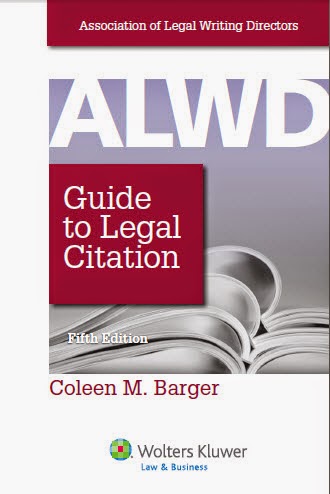Changes To ALWD's 5th Edition

The Association of Legal Writing Directors recently released its 5th edition of the ALWD Guide to Legal Citation. The new features include: Elimination of stylistic differences between the ALWD Manual and the Bluebook , to help combat the perception that students who learn citation with ALWD do not know how to “Bluebook.” Reduction of length by 55 pages. Streamlining of the number of rules, from 49 to 40. New, more modern page design improves ease of use. Comprehensive website with hundreds of exercises for student practice and mastery of the rules of legal citation. Allows professors to spend more class time focused on other aspects of legal writing. It sounds like ALWD got a great makeover. Anything that makes legal citation a little easier to bear is a good thing. It'll be interesting to compare the new ALWD Manual to the Bluebook to see exactly what the editors mean when they say they eliminated stylistic differences between the two. I wonder if the ALWD citati
